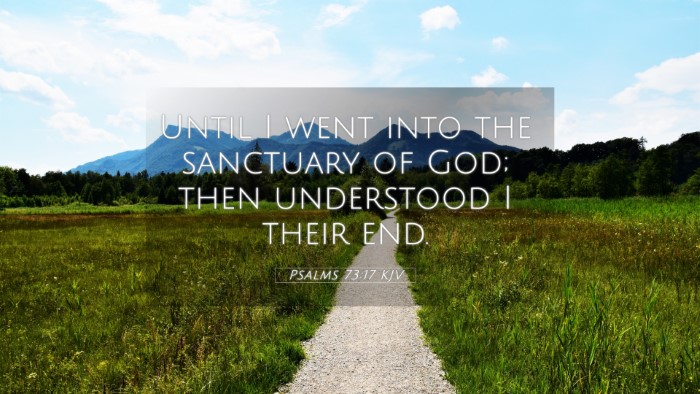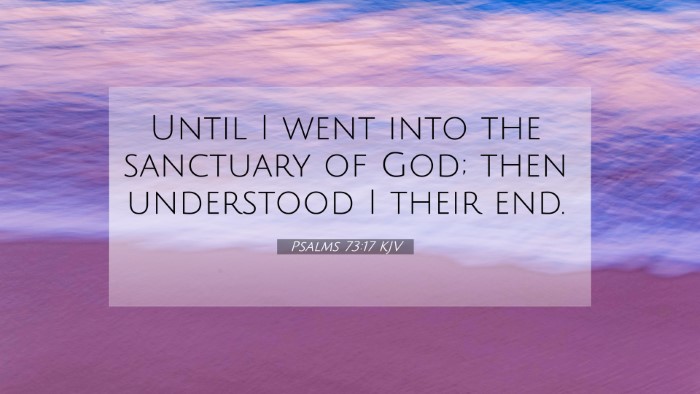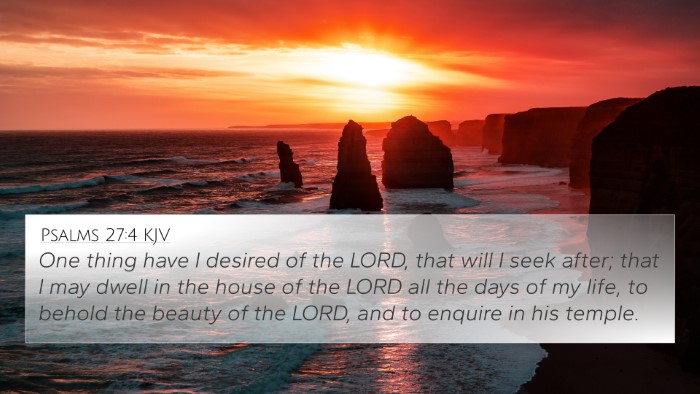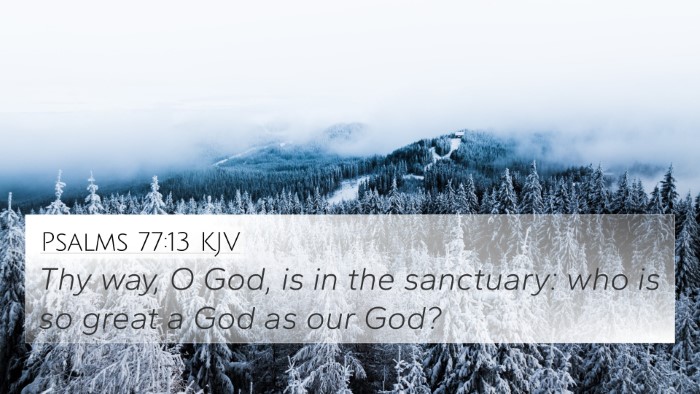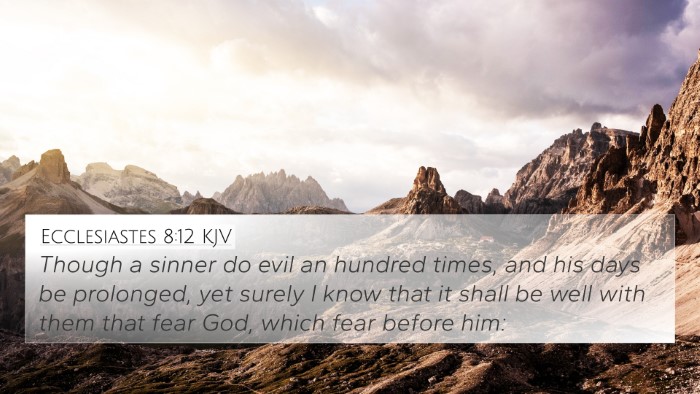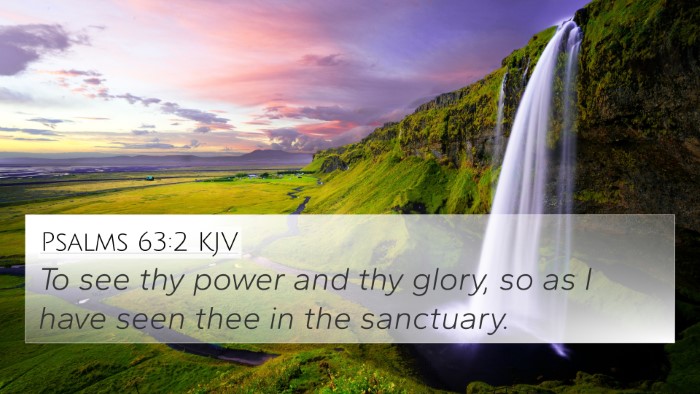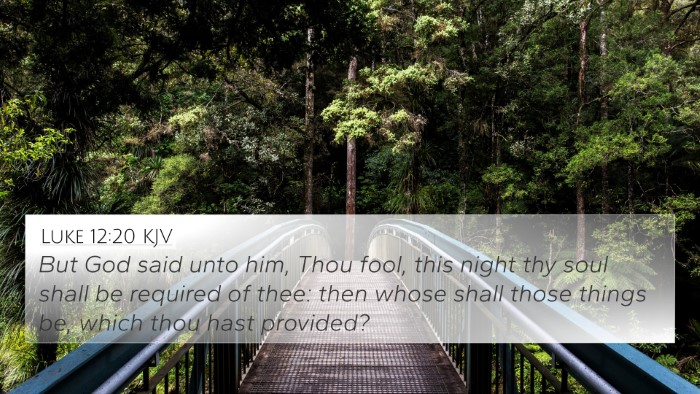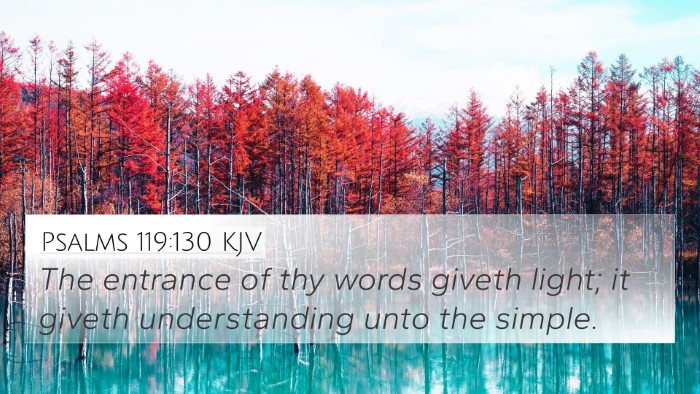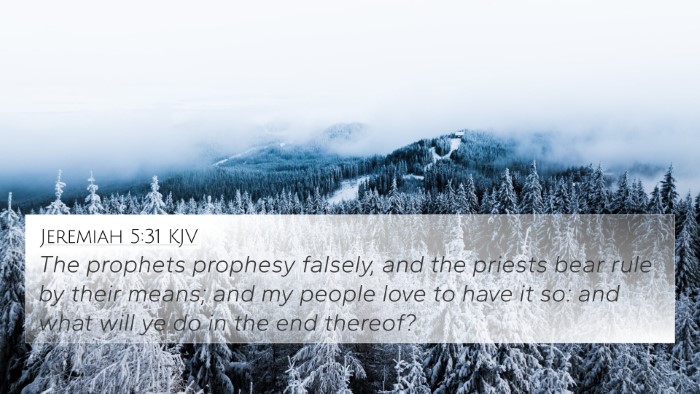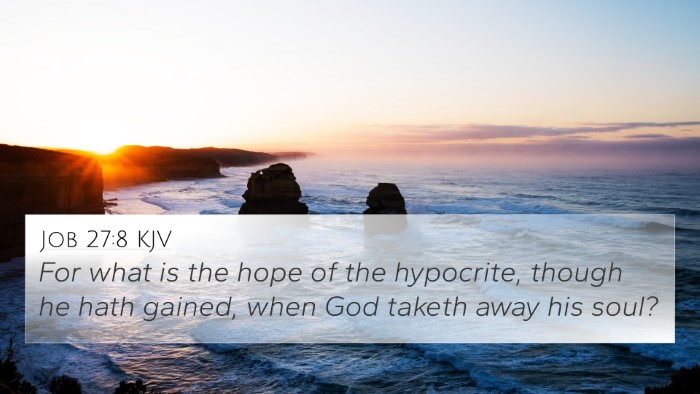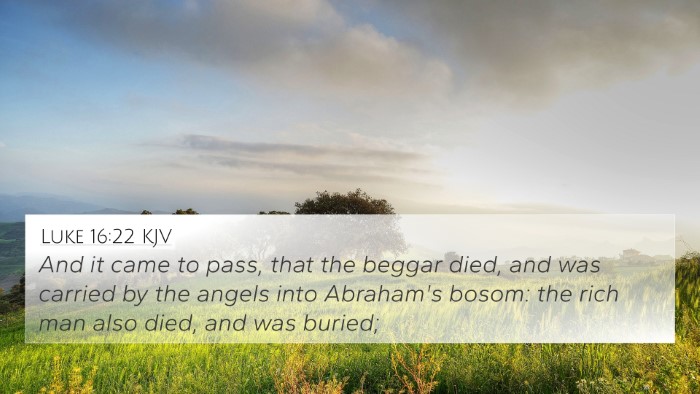Understanding Psalms 73:17
Psalms 73:17 states, "Until I went into the sanctuary of God; then understood I their end." This verse encapsulates a profound moment of realization and enlightenment experienced by the psalmist, Asaph. Here, we will explore the meanings, commentaries, and thematic connections surrounding this passage.
Verse Meaning
This verse highlights a crucial turning point in the psalmist's understanding of the prosperity of the wicked compared to the suffering of the righteous. The sanctuary symbolizes a place of divine revelation and truth, where the psalmist gains clarity about the ultimate fate of the wicked.
Commentaries
Matthew Henry's Commentary
Henry emphasizes the importance of the sanctuary as a metaphorical space where believers gain insight into God's justice. Until entering this sacred space, the psalmist struggled with envious thoughts regarding the prosperity of the wicked. In the sanctuary, he is reminded of God's sovereignty and the eventual judgment that awaits the ungodly, allowing him to find peace and understanding.
Albert Barnes' Notes
Barnes notes that the psalmist's struggles with doubt are common among believers facing adversity. The sanctuary serves as a reminder of God's ultimate providence and the coming judgment of the unrighteous. Through this experience, Asaph understands that the apparent success of the wicked is temporary and ultimately leads to destruction.
Adam Clarke's Commentary
Clarke delves into the psychological state of Asaph before and after his visit to the sanctuary. Before entering, he is filled with confusion and envy. Afterward, however, he gains a broader perspective on God’s plan for justice, which quiets his inner turmoil and leads him to worship. Clarke stresses that divine wisdom is often revealed in the context of communal worship and reflection in God's presence.
Key Insights
- The Sanctuary as a Symbol: Represents a place for divine communication and understanding.
- Understanding God’s Justice: The realization that the apparent success of the wicked is temporary and deceiving.
- Community and Worship: Encourages believers to seek understanding through collective worship and reflection.
Cross-References
Psalms 73:17 connects to several other biblical texts that address similar themes of divine justice and the plight of the righteous. Here are some key cross-references:
- Psalms 37:10-11: "For yet a little while, and the wicked shall not be; ... but the meek shall inherit the earth." This highlights the eventual downfall of the wicked.
- Psalms 49:13-14: "This their way is their folly: yet their posterity approve their sayings. Selah. Like sheep they are laid in the grave; death shall feed on them." Illustrates the eventual fate of the wicked.
- Psalms 92:7: "When the wicked spring as the grass, and when all the workers of iniquity do flourish; it is that they shall be destroyed forever." A reassurance of God's justice.
- Proverbs 14:32: "The wicked is driven away in his wickedness: but the righteous hath hope in his death." Discusses contrasting destinies.
- Ecclesiastes 8:12-13: "Though a sinner do evil an hundred times, and his days be prolonged, yet surely I know that it shall be well with them that fear God." Emphasizes the long-term repercussions of one's life choices.
- Matthew 7:13-14: "Enter ye in at the strait gate ... few there be that find it." Reinforces the notion of a difficult road for the righteous.
- Romans 2:6-8: "Who will render to every man according to his deeds: to them who by patient continuance in well doing seek for glory and honour and immortality, eternal life." Highlights divine judgment.
Thematic Connections
When examining Psalms 73:17 in conjunction with other Scriptures, several major themes emerge:
- The Nature of Divine Justice: Many passages emphasize that God's justice may not be immediately evident but is sure in the end.
- The transient nature of worldly success: The Bible consistently teaches that what may appear as success does not equate to lasting happiness or fulfillment in light of eternity.
- The importance of perspective in trials: Understanding one's circumstances from a divine viewpoint encourages trust in God’s plan.
Conclusion
In summary, Psalms 73:17 serves as a poignant reminder for believers to seek understanding in the presence of God. Through the insights from various commentaries and alongside relevant biblical cross-references, we find a deeper appreciation for God’s justice and assurance in our faith journey. When we engage with Scripture and reflect on its truths, like Asaph, we gain clarity and peace amidst the complexities of life.

